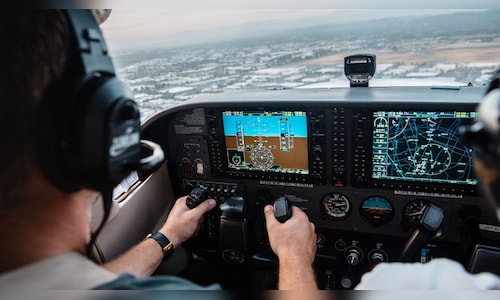ALPA India is an associate member of the International Federation of Airline Pilots’ Associations (IFALPA).
The association’s letter alleges that aspiring pilots are forced to pay extremely high sums in the name of training fees. This financial strain is often unbearable for the families of these pilots, who are trapped in debt due to these inflated costs. This issue is particularly alarming given the acute shortage of pilots in India, which is further compounded by this exploitative practice—one that the pilots’ association claims is unique to India.
ALPA India’s letter further states that the fees charged by airlines far exceed the actual costs of pilot training, making this “unethical practice nothing but a mode of profiteering.”
According to ALPA India, the training fees collected from trainees often range from ₹60 lakh to over ₹1 crore—an exorbitant sum compared to the actual cost of type ratings in international markets, which typically do not exceed ₹20 lakh. These funds do not come with any guarantees for the trainees, who are merely bonded to the airline for a period of at least three years.
ALPA India emphasised that should an airline cease operations, as witnessed with Kingfisher, Jet Airways
, and Go Air, trainee pilots are left without recourse, further underscoring the financial exploitation they face.
In addition to the excessive training costs, ALPA India has pointed out that the regulatory framework, particularly the Directorate General of Civil Aviation (DGCA), appears to have inadvertently allowed this unethical practice to continue. The letter alludes to the significant lobbying power of certain airlines, which may be influencing the promulgation of Civil Aviation Requirements (CARs) that enable such practices to persist.
The association has raised concerns over the absence of clear regulations or official directives from the DGCA that would justify the exorbitant training fees charged by airlines. ALPA India is requesting clarification on whether such practices are being legitimised through specific DGCA regulations or if this remains a loophole being exploited by the airlines.
ALPA India claims that the high cost of pilot training has made the profession increasingly inaccessible to the average Indian citizen and undermines the Ministry of Civil Aviation’s vision of “Ude Desh Ka Aam Nagarik,” which seeks to make aviation accessible to the common man.
The association also points out that these exploitative practices contribute to the ongoing shortage of Indian pilots, which, in turn, leads to excessive hiring of expatriate pilots, further escalating costs for airlines.
In light of these serious concerns, ALPA India has called for a judicial inquiry into the practices surrounding pilot training fees. The association has urged the Aviation Minister’s office to investigate the matter thoroughly and address the concerns outlined in its letter.
ALSO READ: IndiGo to launch Delhi-Bangkok flights on Boeing 787-9, its first wide-body service


